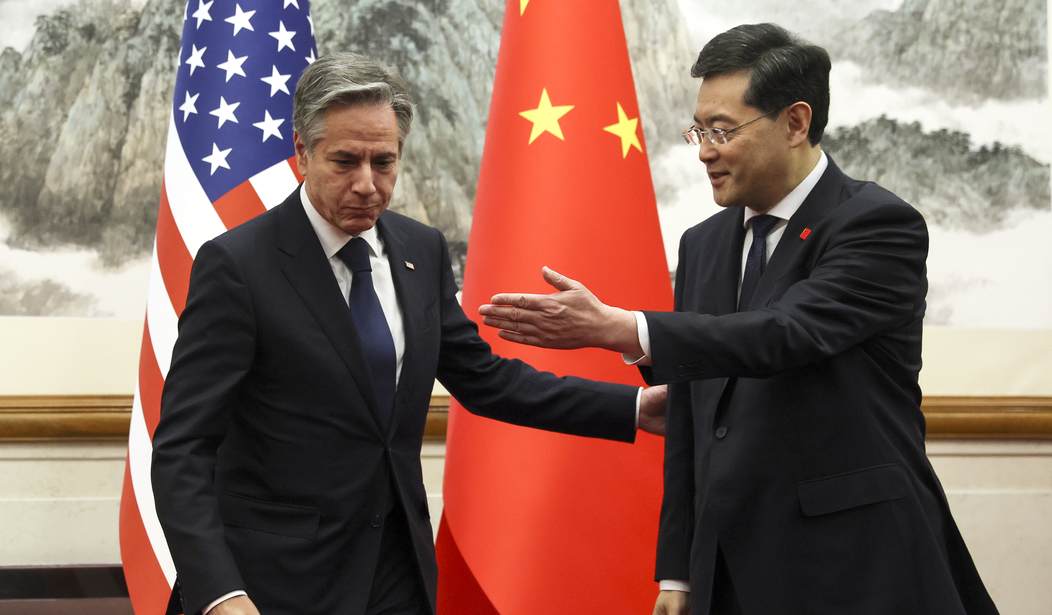The protests roiling our college campuses have provided yet another opportunity for the perennially disgruntled to call for the end of America's democratic form of government and system of free market capitalism, and to replace both with some collectivist pipe dream.
It is a searing indictment of American higher education that our students and graduates are so ignorant of the death and destruction wrought by both communism and socialism that they can advocate for Marxism with a straight face.
The death toll associated with a century of communism is almost impossible to grasp. It is certainly upward of 100 million people. The late Rudolph Rummel, a historian and professor of political science at the University of Hawaii, calculated the number at closer to 170 million people killed -- and that number excluded deaths from battles and wars. Millions died as a result of political persecution: imprisonment, torture, purges, executions, and other murders.
But tens of millions more died from starvation.
In Russia, 5 million people starved in the famine of 1921-22. Another 6 to 9 million starved in another famine in the early 1930s. (More than 3 million Ukrainians alone perished, in what is now called the "Holodomor.")
In China, up to 45 million people starved to death in the Great Famine of 1958-1962 caused by the policies of Mao Zedong.
In Cambodia, the communist Khmer Rouge killed an estimated 2 million, or 25% of the population. Untold numbers of those starved to death under the economic restructuring put in place by the regime.
In North Korea, somewhere between a quarter of a million and 3.5 million people starved to death in the famine of the mid-1990s.
Socialist Hugo Chavez took Venezuela -- the most prosperous country in South America -- and reduced the majority of its population to abject poverty in just over a decade.
Recommended
Why does this happen over and over again?
Hubris. Arrogance. Stupidity. But more than anything else, the complete lack of alternatives.
Consider: How many companies in the United States have gone bankrupt in the country's history? Hundreds of thousands. Perhaps millions. By way of example, between 2000 and 2022, anywhere from 15,000 to more than 60,000 companies declared bankruptcy in any given year. And yet, did those bankruptcies leave us without food? Fuel? Cars? Clothing? Homes to buy or apartments to rent?
No.
Because when some companies failed as a result of poor decisions, unforeseen circumstances, mismanagement or even fraud, others succeeded and were able to provide what the defunct organizations could not.
But what happens when all products and services are provided by one entity, or by the government? What happens when the government owns all the land? Controls every industry? Makes all agricultural and industrial decisions?
When there is only one producer, and anything happens that they do not anticipate, the failure is systemic, and catastrophic.
This isn't hypothesis or speculation; we've seen it happen with regularity in top-down, command-and-control economies. Mao's "Four Pests" plan to rid the country of sparrows allowed plagues of locusts to destroy the country's crops. Chavez thought the price of oil would stay high forever. The Khmer Rouge thought they could transplant farmers into hospitals and turn surgeons into farmers.
This phenomenon is not limited to authoritarian governments.
The tiny country of Sri Lanka is perhaps the latest example of what happens when a government issues ill-informed agricultural mandates. Prompted by environmental activists, the former president of Sri Lanka banned the use of nitrogen and synthetic fertilizers in the country's farms. The country's production of its major agricultural products plummeted. Sri Lanka went from being a net exporter of rice and tea to not having enough for Sri Lankans themselves to eat. Prices for food, fuel, heat, and medicine skyrocketed. Widespread civil unrest and violence erupted, forcing the president to flee the country.
Now, our own government wants more power and control over our agricultural production, over our industries, over our economy. In the name of anthropogenic "climate change" -- the science for which remains murky, at best -- our government is trying to eliminate the oil and gas and coal industries, radically restructure the automotive industry, and force Americans to purchase electric-powered vehicles. Politicians want to limit the use of air conditioners, and ban appliances powered by natural gas. Activists are pushing the government to reduce dairy farming as well as agricultural meat production and consumption, allegedly because of the methane in cow farts. Billions of dollars are being spent to reduce carbon dioxide in the atmosphere, which plants require to grow. Plants produce oxygen, which humans require to live.
The problem isn't just gaps in scientific knowledge or flawed economic policies; it is too much power in too few hands. When those with all the power are wrong about something -- and they are always wrong about something -- the damage their mistakes cause is monumental.
America has enjoyed the success it has precisely because economic and political power has been diffused and distributed -- among the states, into the local governments, among millions of businesses and tens of millions of people. The ideologues in our ranks who are so certain that they can and should control everything are manipulating the political process -- through propaganda, censorship, unaccountable bureaucratic regulation, and executive order -- to centralize their power over our economy.
The lessons from history are clear -- anyone given that control over our economy will destroy it.

























Join the conversation as a VIP Member